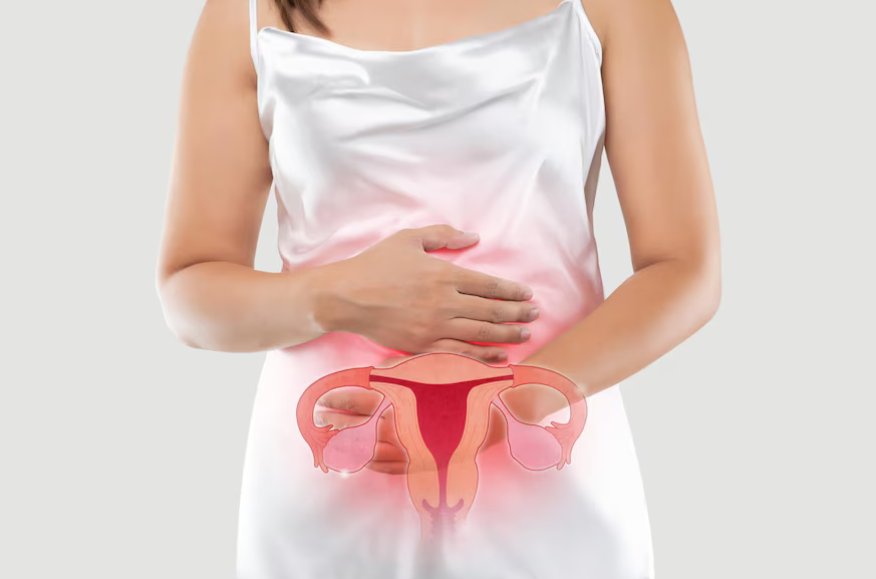
14 Apr What Are Uterine Fibroids and How Does it Affect Your Body?
Uterine fibroids, also known as leiomyomas or myomas, are non-cancerous growths that develop in the uterus. While often benign, these fibroids can cause a range of symptoms and affect a woman’s overall health and quality of life. Understanding the causes, symptoms, and available treatment for uterine fibroids is crucial for effective management and optimal health.
What Are Uterine Fibroids?
Uterine fibroids are smooth muscle tumors that form within the walls of the uterus. They can vary in size, ranging from small, pea-sized nodules to large growths that distort the shape of the uterus. Fibroids can develop as a single growth or as multiple tumors, and their growth patterns may change over time.
Causes of Uterine Fibroids
The exact cause of uterine fibroids remains unclear, but several factors may contribute to their development, including:
- Hormonal Factors: Estrogen and progesterone, hormones that regulate the menstrual cycle, play a role in fibroid growth. Fibroids tend to grow during reproductive years when hormone levels are highest and may shrink after menopause when hormone levels decline.
- Genetic Predisposition: A family history of uterine fibroids increases the risk of developing fibroids. Certain genetic mutations and variations may also influence fibroid development.
- Other Risk Factors: Other factors such as obesity, early onset of menstruation, and dietary habits may also impact the risk of developing uterine fibroids.
Symptoms of Uterine Fibroids
The symptoms of uterine fibroids can vary depending on the size, number, and location of the tumors. While some women may experience no symptoms at all, others may experience:
- Heavy or Prolonged Menstrual Bleeding
- Pelvic Pain or Pressure
- Frequent Urination
- Difficulty Emptying the Bladder
- Constipation or Difficulty Passing Stool
- Backache or Leg Pain
- Painful Intercourse
- Enlargement of the Abdomen or Uterus
- Infertility or Pregnancy Complications
How Uterine Fibroids Affect Your Body
Uterine fibroids can affect the body in various ways, including:
- Menstrual Disturbances: Fibroids can cause heavy menstrual bleeding (menorrhagia), irregular periods, and prolonged menstrual cycles, leading to anemia and fatigue.
- Pelvic Pain and Discomfort: Large fibroids or those located near the pelvic organs may cause pelvic pain, pressure, or discomfort, affecting daily activities and quality of life.
- Urinary Symptoms: Fibroids pressing on the bladder can lead to frequent urination, urgency, or difficulty emptying the bladder completely, resulting in urinary tract infections or other complications.
- Bowel Symptoms: Fibroids pressing on the rectum or intestines may cause constipation, difficulty passing stool, or abdominal bloating, impacting digestive health and bowel function.
- Pregnancy and Fertility Issues: Fibroids may interfere with fertility by blocking the fallopian tubes, disrupting the implantation of embryos, or causing complications during pregnancy, such as miscarriage, preterm labor, or breech presentation.
Treatment Options for Uterine Fibroids
The treatment approach for uterine fibroids depends on various factors, including the severity of symptoms, the size and location of fibroids, and the patient’s age and reproductive goals. Treatment options may include:
- Watchful Waiting: In cases where fibroids are small and asymptomatic, watchful waiting with regular monitoring may be recommended to assess fibroid growth and symptom progression over time.
- Medications: Hormonal medications, such as birth control pills, gonadotropin-releasing hormone (GnRH) agonists, or progestin-releasing intrauterine devices (IUDs), may help alleviate symptoms such as heavy bleeding and pelvic pain.
- Minimally Invasive Procedures: Minimally invasive procedures, such as uterine artery embolization (UAE), magnetic resonance-guided focused ultrasound surgery (MRgFUS), or laparoscopic or robotic-assisted myomectomy, can remove or shrink fibroids while preserving the uterus.
- Surgical Removal: In cases where fibroids are large, symptomatic, or impacting fertility, surgical removal of fibroids (myomectomy) or the entire uterus (hysterectomy) may be necessary, especially for women who have completed childbearing.
- Fertility-Sparing Options: For women desiring future pregnancy, fertility-sparing treatments such as myomectomy or selective embolization of the uterine arteries may be considered to preserve fertility while addressing fibroid-related symptoms.
Get the Best Uterine Fibroid Treatment in Patna with Dr. Usha M Kumar
If you’re experiencing symptoms of uterine fibroids or have concerns about your gynecological health, consult Dr. Usha M Kumar, a renowned gynecologist in India. With expertise in diagnosing and treating uterine fibroids, Dr. Usha Kumar offers personalized care and advanced treatment options to meet your unique needs.
To schedule an appointment or learn more about uterine fibroid treatment options, contact Dr. Usha M Kumar at 9999293741 or visit www.drushamkumar.com. Take control of your health and well-being with comprehensive gynecological care from Dr. Usha M Kumar.
Empower yourself with knowledge and proactive management of uterine fibroids. Don’t let fibroids affect your quality of life – seek expert care and support today.




Sorry, the comment form is closed at this time.